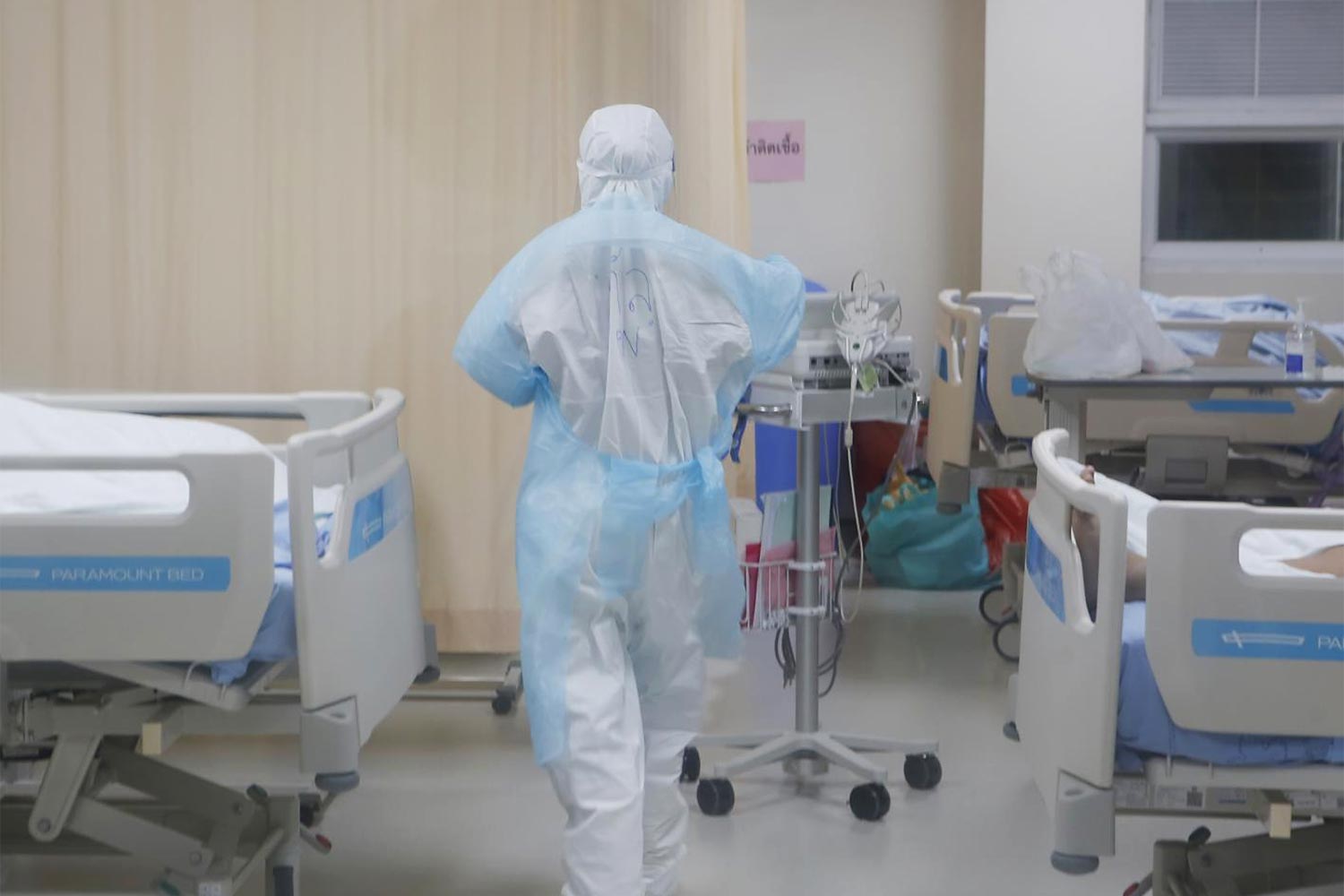
My children have Covid-19.
That's not a sentence I thought I would write. My children have… tantrums, wrestling matches, too much chocolate, more screen time than recommended. That's what lockdown life in the pandemic has meant for us.
Our nanny last month tested positive for Covid a few days earlier with symptoms of fever, body aches and chills. Our house scrambled into action (out of our own social responsibility as the Bangkok Metropolitan Administration (BMA)-operated hospital that diagnosed her did not track nor trace us for further testing -- but that's a different story). We swabbed the adults who had contact with her to avoid putting our children through such an uncomfortable procedure.
Our PCR tests came back negative on a sleepless Sunday morning. We rejoiced and relished escaping the novel -- but awful -- coronavirus for one more day.
That night my four-year-old son had a fever. It's the change in the weather, I told myself. If I -- his mother -- who shares the most respiratory airtime with him was Covid-negative, he couldn't have contracted it. Right? My denial was shaken the next morning after he vomited up his breakfast.
That afternoon my two-year-old daughter woke up from her nap with a fever. We arranged their tests the next day.
The hospital on June 22 called us two hours later with the children's positive results. I wept at the unknowns of a virus that could mark the lives of kids who didn't ask for any of this. The cold, sterile Covid-mobile swiftly removed my two positive blights from the general population to isolate at a "hospitel". My husband and I -- although negative -- could stay with the kids, a privilege not afforded to everyone but a health risk for us as well.
Last month, recovering at home -- home isolation was not an option; the Public Health Ministry finally endorsed this policy recently. Government regulations decree that those who test positive via a PCR test must enter a hospital, field hospital or "hospitel". Where and how my children would be cared for was out of my hands.
Initially the Covid statistics may have been faceless but everyone reading this now has probably been directly or indirectly affected by a confirmed case. Since April 2021 infections have only been increasing and much sought-after beds decreasing. Hospitals temporarily suspended Covid testing because they simply could not take in more patients.
"We have been working with our private hospital partners to ensure all our patients get hospital beds once tested positive. The situation we have now is that severe patients are waiting for [limited] beds occupied by mild patients. If we prioritise patients with severe symptoms, the load on the already stressed healthcare system would be lessened, and the patients who truly need to be in the hospital to receive care would have a higher chance of getting a bed," states Devi Bajaj, co-founder of Enliven Health Concierge, a local healthcare liaison that facilitates the medical care of patients.
Why wasn't home isolation for those with mild symptoms part of the initial plan?
Every morning a nurse comes to check my children's oxygen levels and temperature. We hear her plastic PPE suit crinkling before she reaches our door. Behind her N-95 mask layered with a face and hair shield is a healthcare worker doing 12-hour shifts. We want to feel reassured she is here to ensure my children's optimal health; but then we remember it's Covid -- she doesn't want to come within six feet of us if she can help it.
Her gloves and feet coverings are excessively taped to the protective gear so not one cell of her skin is exposed to the virus-filled air. After her rounds, she must strip off all her equipment, take a shower and put on new clothes and a new suit. Medical staff here say they are stifled and stuffy underneath. I see droplets of moisture forming inside the plastic protecting the nurse and tension in the eyes behind her barriers.
A paediatrician at a leading private hospital in Bangkok, speaking anonymously, explains the government-mandated quarantine: "The number 14 is the guideline experts are using for the whole country to track [Covid] symptoms and its contagion. If patients go back home we cannot control their quarantine and ensure they will stay home. There are economic factors for lack of [home] quarantine here. Not everyone can stay home for 14 days because they need to go out and make money."
The construct of "home" is different based on your status. But being holed up for 14 days in an uncommon environment could cause far worse ailments, both mental and physical, than responsibly isolating at home.
"Patients need open air and sunlight. If we can provide that safely, it would be good in this crisis. As more kids are getting Covid, they need more support. A hospital's job is to make the children's ward as similar to home as possible and parents must make sure [their kids] don't feel like they are being punished. We need a better solution for the safety of everyone in the realm of mental health," the paediatrician adds.
I asked doctors and hospital representatives to allow us to legally complete our quarantine at home after the children's X-rays and blood tests came back optimistic. The answer has been a hard no.
This blanket isolation completely eliminates the non-symptomatic needs of patients. It doesn't take into account socio-economic or psychological factors for those who can't afford to be removed from their lives for two weeks. That's why many decline to get tested officially at hospitals.
The government policy is also a direct insult to the Thai people and risks the population's sanity; do they believe we are so untrustworthy that we think "quarantine" means we can still walk to 7-Eleven and buy a hot dog?
But in a pandemic there is no room for individuals; only rules to do what is deemed best for the greater good.
We try not to count the days. My son drives his toy police car around the bed over and over. He doesn't realise we are actually the ones being jailed.
Sumati Sivasiamphai is a former editor of the Bangkok Post's Guru magazine. She currently works as a freelance columnist for various local publications.

